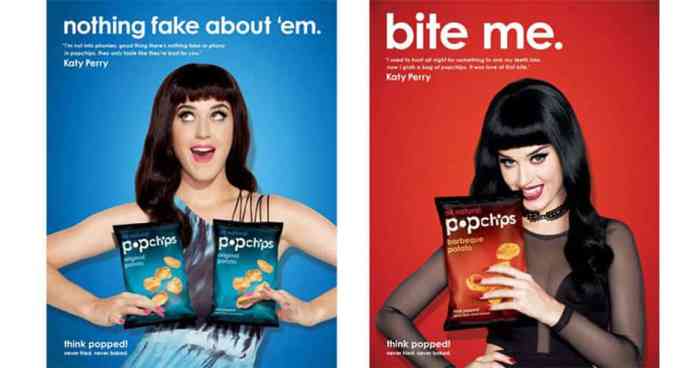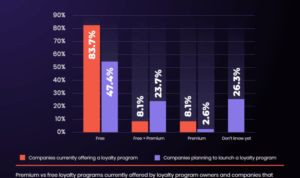Using Social Proof in Ads takes center stage, inviting readers into a world where credibility and trust are key players in crafting successful ad campaigns. Get ready to dive into the power of social proof and its impact on consumer behavior and conversions.
In this dynamic realm of advertising, leveraging social proof can make or break the success of your ads. Let’s explore how you can effectively integrate social proof elements to create compelling ad copy that resonates with your audience.
Introduction to Social Proof in Ads

Social proof in advertising is a powerful tool that leverages the influence of others to persuade potential customers to take action. By showcasing testimonials, reviews, endorsements, or user-generated content, brands can build credibility and trust with their audience. This social validation reassures consumers that they are making the right choice by purchasing a product or service.
Examples of Effective Use of Social Proof in Ads
- Featuring customer testimonials with positive feedback on a product
- Showcasing endorsements from influencers or celebrities who use the product
- Displaying user-generated content, such as photos or videos of customers enjoying the product
The Importance of Leveraging Social Proof
Social proof plays a crucial role in building trust and credibility with the audience. When consumers see that others have had positive experiences with a product or service, they are more likely to trust the brand and make a purchase. By strategically incorporating social proof in ads, companies can influence consumer behavior and drive conversions effectively.
Types of Social Proof
Social proof comes in various forms and plays a crucial role in shaping consumer behavior. Let’s explore the different types commonly used in advertisements and how they impact consumers.
Testimonials
Testimonials are statements or endorsements from satisfied customers, highlighting their positive experiences with a product or service. These personal accounts create a sense of trust and credibility, influencing potential customers to make a purchase.
User Reviews
User reviews are feedback or comments posted by consumers who have used a product or service. Positive reviews can significantly boost a brand’s reputation and encourage others to try the product, while negative reviews can have the opposite effect.
Influencer Endorsements
Influencer endorsements involve popular personalities or celebrities promoting a product or service to their followers. The influence and credibility of the influencer can sway consumer opinions and drive sales.
Comparing and Contrasting Effectiveness
- Testimonials provide a personal touch and are relatable, making them effective in building trust.
- User reviews offer authentic feedback, giving potential customers insights into the product’s quality and performance.
- Influencer endorsements leverage the influencer’s authority and reach, making them impactful in reaching a wider audience.
Overall, each type of social proof has its strengths and can be effective in different ways depending on the target audience and marketing goals.
Implementing Social Proof in Ad Copy

Social proof can be a powerful tool when integrated effectively into ad copy. By showcasing positive feedback, testimonials, endorsements, or user-generated content, you can build trust with your audience and increase the credibility of your brand or product. Here are some tips on crafting compelling ad copy that incorporates social proof elements:
Utilize Customer Testimonials
Include quotes or reviews from satisfied customers to demonstrate the positive experiences others have had with your product or service. This can help potential customers feel more confident in their purchasing decision.
Showcase Influencer Endorsements
Partner with influencers or industry experts who can vouch for your brand. Their endorsement can lend credibility and authority to your ad copy, influencing the purchasing behavior of their followers.
Highlight User-Generated Content, Using Social Proof in Ads
Feature content created by your customers, such as photos, videos, or social media posts showcasing your product in action. This authentic content can resonate with potential customers and reinforce the value of your offering.
Include Statistics and Data
Use numbers, percentages, or case studies to provide concrete evidence of your product’s success. Quantifiable data can help validate your claims and persuade skeptical customers.
Examples of Successful Ad Campaigns
One example of a successful ad campaign that effectively used social proof is Airbnb’s “Don’t Go There. Live There” campaign, which featured user-generated content and testimonials from hosts and guests. Another example is Amazon’s product pages, which prominently display customer reviews and ratings to guide purchasing decisions.
Visual Social Proof in Ads: Using Social Proof In Ads
Visuals play a crucial role in enhancing social proof in advertisements by providing concrete examples of how others have benefited from a product or service. Images and videos can be powerful tools to showcase social proof as they offer a more engaging and compelling way to communicate the experiences of satisfied customers. The impact of visual social proof on capturing audience attention and driving conversions cannot be underestimated, as seeing is believing in the world of advertising.
The Role of Images in Showcasing Social Proof
Images have the ability to convey emotions, experiences, and testimonials in a way that text alone cannot achieve. By including images of happy customers using a product or service, businesses can create a visual narrative that resonates with their target audience. These visuals serve as tangible proof of the benefits and value provided, making it easier for potential customers to relate and envision themselves in a similar positive experience.
- Images of real customers using the product can increase credibility and trust.
- Before-and-after images can demonstrate the transformation or results achieved.
- Infographics can present statistics and data in a visually appealing format.
The Impact of Videos on Audience Engagement
Videos are a dynamic way to showcase social proof by bringing testimonials and success stories to life. Through video content, businesses can create a more personalized and authentic connection with their audience, allowing them to see and hear directly from satisfied customers. The visual and auditory elements of videos make them highly engaging and memorable, increasing the likelihood of converting viewers into customers.
- Video testimonials add a human touch and genuine authenticity to social proof.
- Product demonstration videos can highlight key features and benefits in action.
- Customer review videos provide in-depth insights and recommendations from real users.





